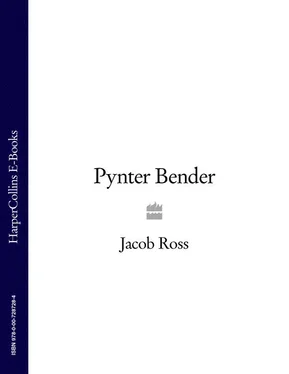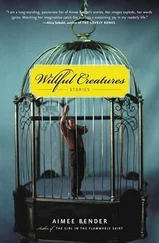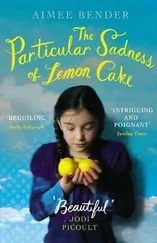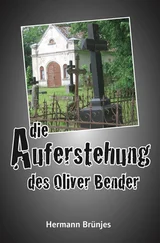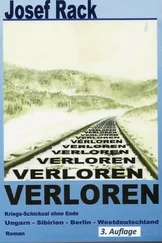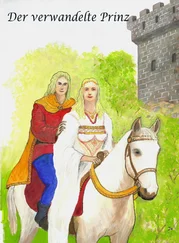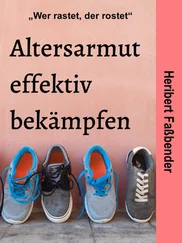Two years later, Birdie’s woman told him of these things the very first night he returned from prison. He left Cynty’s bed, forgetting the loving he had come for, and walked back to the yard. He sat on the stone that John Seegal had placed there for himself and which Deeka would not have anyone else sit on apart from God and Birdie. He’d looked into his sister’s face and asked her if the things that Cynty had just told him were true. He was close to tears, they said, not because she did not answer him, not even because she knocked his hand off when he reached out and touched her shoulder, but because he understood then why she’d given his middle name to Pynter: the difficult one, the strange one, the one born blind, the child not born to live. Not as a way to please him, but as an accusation.
Preparing himself for Gideon meant reminding himself of all these things – recalling the words of the women in the river and learning, while he did so, the way the days unfolded in that place at the edge of the sea.
He sat there until night settled over the long, flat piece of land that stretched itself out like a tongue into the sea, and then with a tightening of the brows he slowly made his way back home.
‘Y’awright?’ Tan Cee’s eyes were steady on his face.
He smiled at her and nodded.
Birdie was stoking wood into the fireplace. Peter stood beside him. He’d missed watching Birdie chopping wood. His uncle did not cook with sticks and bramble; Birdie preferred trees. He brought large portions of their trunks down from the foothills and dumped them against the grapefruit tree. Mid-mornings he took out the axe, shed his shirt and laid into them. The sound of his chopping reached the foothills and bounced right back in their faces. It drew boys to their yard, small crowds that stood and watched in flinching circles. It paused the women on the road below and turned their eyes up towards him, standing there, rigid as a tree and half as tall as God, his legs straddling the wood, the axe coming down and rising, down again and rising, with the sweat and sunlight glistening on his back like grease.
Tonight they would have man food, large portions of everything: wild yams the size of logs that Birdie had also brought down from the foothills, dasheen he’d dug up from the banks of Old Hope River, dumplings, of course, and every kind of meat his uncle could lay his hands on. During the day people passed and dropped lengths of pigtail, a bag of sweet potatoes, or something surprising like pink-fleshed pum-pum yams, or a bowl of dried peas that they’d been hoarding for the hard, dry times like these. Half of Old Hope would turn up later, drawn by the giddying smell of Birdie’s cooking. Elena and Patty got out the plates, the calabashes and bowls. They served the smaller children first, then the bigger ones and finally the adults, whose silence lasted longer than their words these days, whose gazes, while they ate, were always turned away and downwards towards the darkness where the canes were.
These nights Birdie left with Peter. And as the dryness and the heat dug in, they would return later and later, with Birdie sometimes carrying the sleeping boy on one shoulder, a bag of provisions slung over the other. Birdie would lay Peter down so tenderly his brother barely stirred.
There grew a creeping uneasiness about these night-time journeys that saw his uncle and his brother returning to the yard closer to morning every time. Pynter saw it in his mother’s face, in Tan Cee’s glances at Patty, in their wordless avoidance of Birdie’s greeting when they got back. His uncle began to bring home a different kind of food, fat chickens and beautifully tended vegetables and fruit. Their avoidance of Birdie turned to whisperings in the dark, the mutterings of Patty and Tan Cee in his mother’s ear. Pynter knew that whatever it was that was nibbling away at their ease required them to say something to Birdie, and those muttered words were a way of talking themselves into a kind of urgency. A way of making whatever they had to say to Birdie come out of them more easily.
If his uncle sensed this, he did not show it. Hard times had changed him. He laughed less, frowned more, would pass his fingers thoughtfully through his beard. There was a temper there too – tight and uneasy behind the passing smiles he would throw at them.
As if to ease her mind of all these things, Tan Cee played a game with Pynter. Nights, she came and placed presents in his hands while he slept: seashells, seeds, sweets; marbles, strange beans and buttons; dark blue pebbles veined with streaks of glowing white; flakes of crystals that winked at him like tiny eyes. Pynter would unfold his fingers in the morning and find them there.
The morning he left for Gideon’s place, Pynter was smiling inwardly. A little way down the road, he saw Tan Cee’s blue headscarf and his heart flipped over. She was sitting on a culvert on the side of the road, chewing on a stick of cinnamon and trying to smile at the same time. He pretended not to see her.
‘Taking a walk, Featherplum?’ She stepped out in front of him and placed an arm across his shoulders. ‘Whapm, fowl pick yuh tongue? Not talking to me this morning?’
She placed more of her weight on him. It slowed him down. ‘Take Peter with you,’ she said. The smile had left her voice.
He glanced quickly up at her. ‘Take Peter where with me?’
‘Wherever you goin.’
‘I not goin nowhere.’
‘Then take him nowhere too. In fact,’ her face twitched as if she were about to sneeze, ‘he and Birdie waiting fo’ you ’cross the river. That the way you goin, not so?’
She glanced at his face and burst out laughing. She was shaking with it, like a joke she had been holding in for years. Her eyes fell on his face again and a louder burst came out of her. People must have heard her at the top end of Old Hope.
Pynter rolled his shoulders violently in an effort to shake off her arm. Her laughter was nettling his temper.
‘Gimme the gun,’ she said, pointing at his pocket.
‘What gun? Somebody gotta gun? It got gun round here? Which gun?’
Her hand darted into his pocket and pulled out his catapult. She tied the rubber straps around her wrist, leaned back from him, shaking her head.
‘I watch you knock a coupla bird outta the sky with this last week, an’ I tell myself, God help the fool who cross you. All that hatin. You full of it. You been full of it from the time you come home from your father. You been feedin yourself on it. Look how it make you magga-bone and dry! See what hatin done to your grandmother? You want to ’come like her?’
He lifted blazing eyes at her. ‘You better don’t come round me no more. You better don’t – specially when I sleepin, cuz…’
‘Cuz what, pretty boy? You goin beat me up? You have to be awake to do dat.’
He searched his head for words to throw back at her but he couldn’t find them, so he stomped off, complaining long and loudly to himself. Her laughter followed him all the way down to the river.
Birdie grunted when he arrived. He’d taken to having his woman plait his hair but today he’d loosened it. It stood up like small clumps of cus-cus grass from his head and made his eyes seem larger. He carried two bags on his shoulders, the big bottomless one he made his night-time forays with and the long canvas sack he’d brought with him from prison.
He was looking down at Pynter. The gold tooth at the front of his mouth glittered like a little flame. There was an expression on his uncle’s face which he did not understand, the look of someone trying to see into the distance while the sun was in their eyes. He shifted the bags on his shoulder, rested a hand on Peter’s head and pushed him gently forward. ‘Go ’head o’ me. I meet y’all down there.’
Читать дальше
